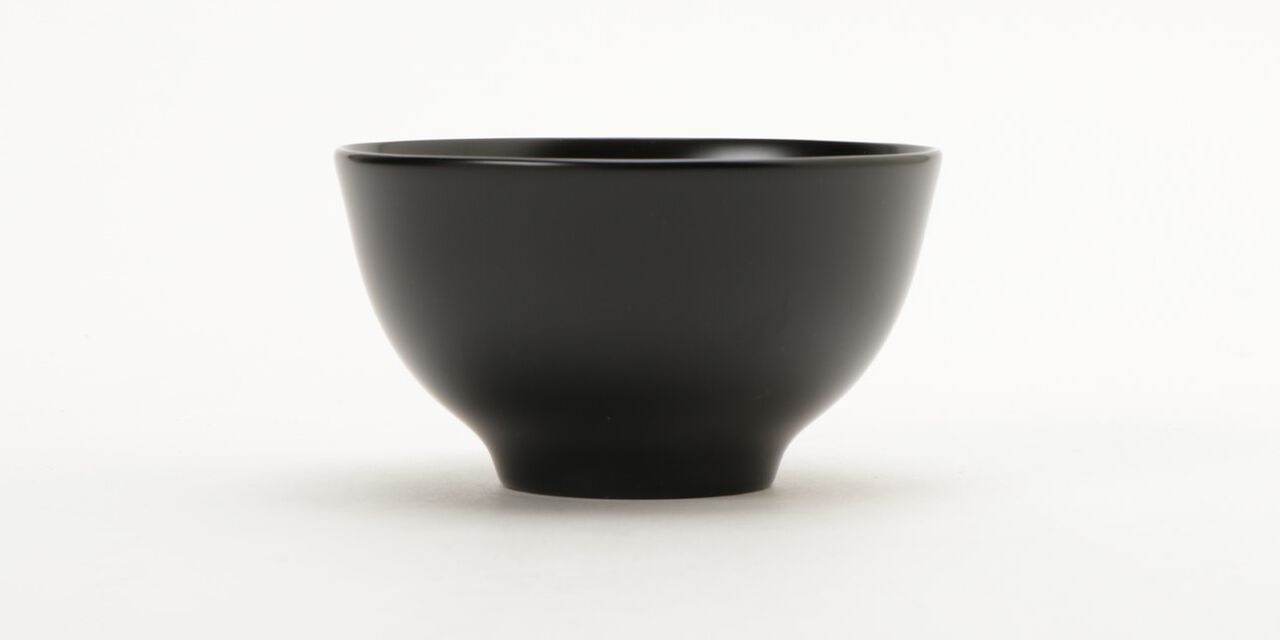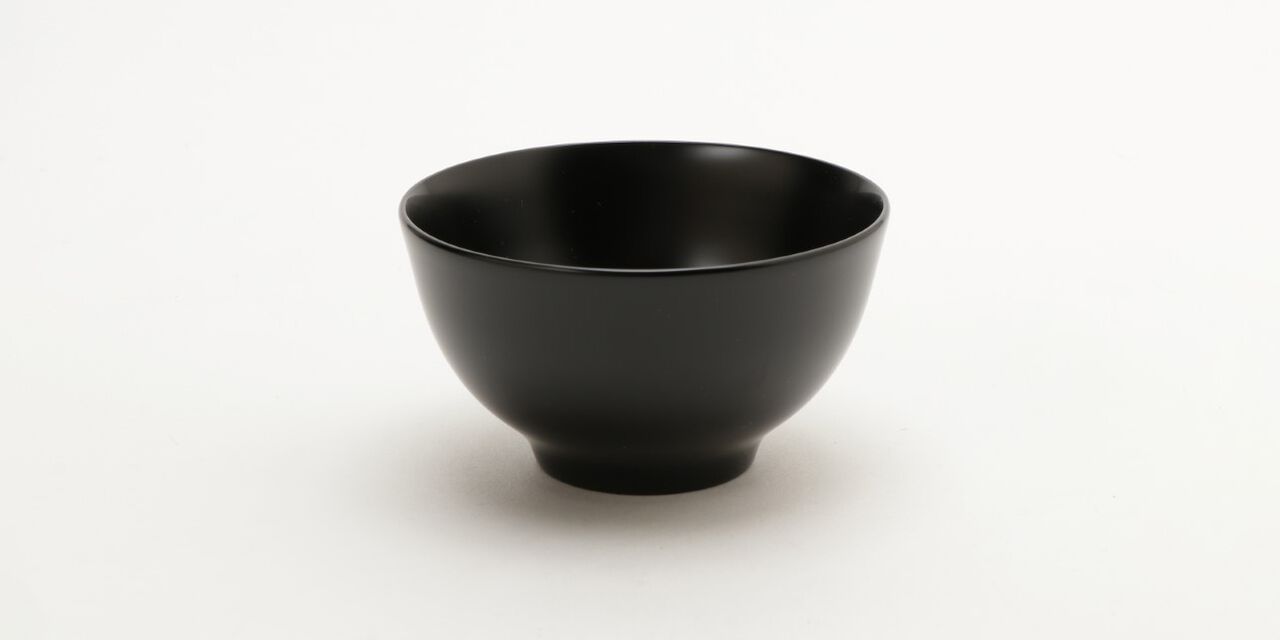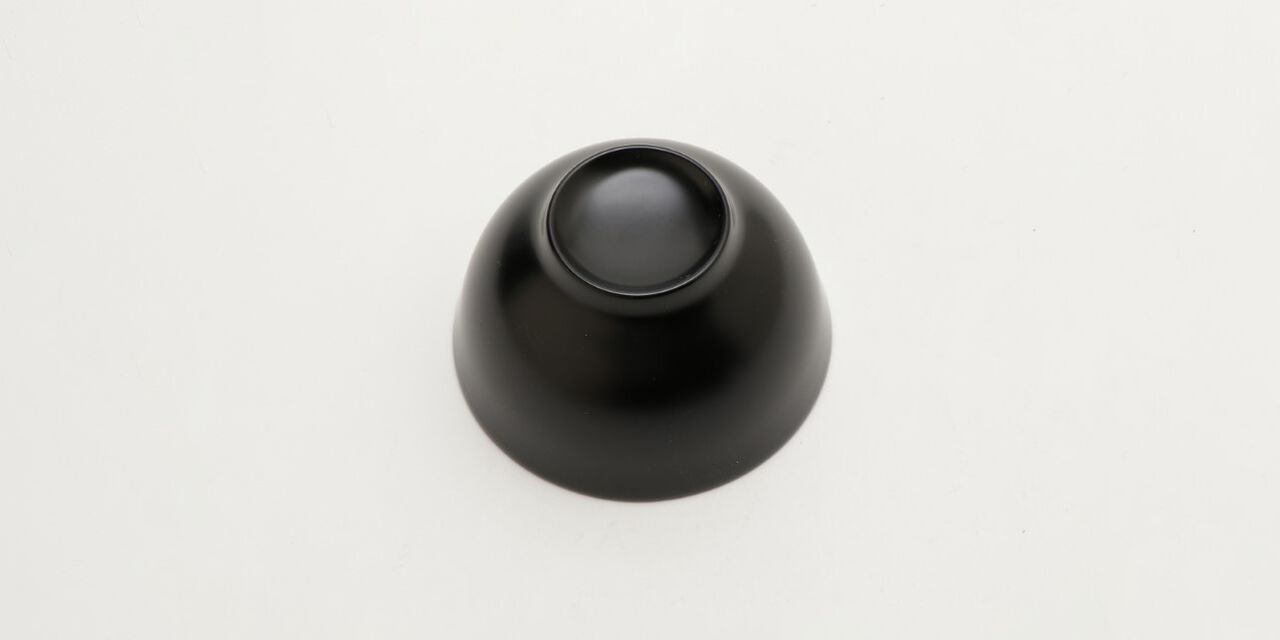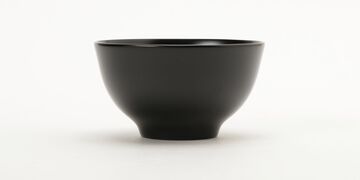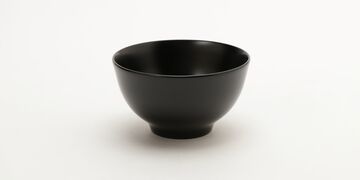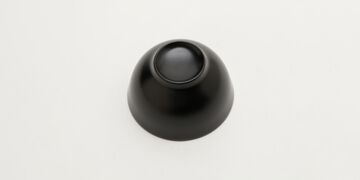WAJIMA KIRIMOTO
Urushi Bowl
Made in
Japan
New
Large Item
Low in Stock
Sold Out
This product is not available in your market
Color
Red
Black
2012000301744
2012000301744
The Lacquer Ware Has Elegant Gloss and Becomes More Attractive As Time Passes.
"Wajima Urushi lacquer ware" has an established impression as a luxury lacquer within Japan. However, it is an easy-to-use item for everyday use.
The natural wood material is lightweight and can be used for rice bowl dishes, various soups, noodle dishes, dessert, and so on.
Because wood exhibits a low thermal conductivity, you can hold this bowl in your hands even when you put hot food in it. Moreover, it provides a soft feel against the mouth.
Kirimoto Family has been working on "wood and lacquer" for over 200 years and is currently working as a woodcrafter while also planning and designing products in Wajima City, Ishikawa Prefecture.
This bowl has elegant gloss and a comfortable touch by the special technique called "Honkataji." The Wajima Urushi lacquer ware is characterized by wood material reinforced with a cloth before applying layers of lacquer to assure strength. One of the local materials is "Diatomaceous earth" which is a naturally occurring sand extracted from Mt. Komine in Wajima City.
The lacquer ware ages beautifully, and it becomes more attractive as time passes. Frequent use will help moisturize the product sufficiently and result in good maintenance.
"Wajima Urushi lacquer ware" has an established impression as a luxury lacquer within Japan. However, it is an easy-to-use item for everyday use.
The natural wood material is lightweight and can be used for rice bowl dishes, various soups, noodle dishes, dessert, and so on.
Because wood exhibits a low thermal conductivity, you can hold this bowl in your hands even when you put hot food in it. Moreover, it provides a soft feel against the mouth.
Kirimoto Family has been working on "wood and lacquer" for over 200 years and is currently working as a woodcrafter while also planning and designing products in Wajima City, Ishikawa Prefecture.
This bowl has elegant gloss and a comfortable touch by the special technique called "Honkataji." The Wajima Urushi lacquer ware is characterized by wood material reinforced with a cloth before applying layers of lacquer to assure strength. One of the local materials is "Diatomaceous earth" which is a naturally occurring sand extracted from Mt. Komine in Wajima City.
The lacquer ware ages beautifully, and it becomes more attractive as time passes. Frequent use will help moisturize the product sufficiently and result in good maintenance.
Designer: Taiichi Kirimoto
Techniques: Honkataji
Materials: Natural lacquer, zelkova
Dimensions/capacity: Diameter 122mm x height 68mm/approx. 350ml
* Capacity indicates volume when filled to the rim
Techniques: Honkataji
Materials: Natural lacquer, zelkova
Dimensions/capacity: Diameter 122mm x height 68mm/approx. 350ml
* Capacity indicates volume when filled to the rim
WAJIMA KIRIMOTO
Wajima Kirimoto has been working on "wood and lacquer" for over 200 years since the second half of the Edo era (1603 - 1867) and is currently working as a woodcrafter while also planning and designing products. The firm works together with many artisans to collaborate on wood products, lacquerware, furniture, and interior work in a region that implements division or work and directly sells their products without using wholesalers.
Wajima Kirimoto has been working on "wood and lacquer" for over 200 years since the second half of the Edo era (1603 - 1867) and is currently working as a woodcrafter while also planning and designing products. The firm works together with many artisans to collaborate on wood products, lacquerware, furniture, and interior work in a region that implements division or work and directly sells their products without using wholesalers.
・Your skin may develop rashes or other irregularities from the lacquer, depending on your predisposition. If rashes or any irregularities occur, promptly consult your physician and follow instructions.
・Do not expose to fire, microwave, or oven.
・Do not expose to direct sunlight or other sources of ultraviolet rays for prolonged periods. Do not expose to environments with significantly high temperature and/or humidity. it may cause deformation, discoloration, or mold growth.
・Do not use if the product breaks, chips or cracks. The situation will worsen and make the product irreparable.
・Do not expose to fire, microwave, or oven.
・Do not expose to direct sunlight or other sources of ultraviolet rays for prolonged periods. Do not expose to environments with significantly high temperature and/or humidity. it may cause deformation, discoloration, or mold growth.
・Do not use if the product breaks, chips or cracks. The situation will worsen and make the product irreparable.
The Lacquer Ware Has Elegant Gloss and Becomes More Attractive As Time Passes.
"Wajima Urushi lacquer ware" has an established impression as a luxury lacquer within Japan. However, it is an easy-to-use item for everyday use.
The natural wood material is lightweight and can be used for rice bowl dishes, various soups, noodle dishes, dessert, and so on.
Because wood exhibits a low thermal conductivity, you can hold this bowl in your hands even when you put hot food in it. Moreover, it provides a soft feel against the mouth.
Kirimoto Family has been working on "wood and lacquer" for over 200 years and is currently working as a woodcrafter while also planning and designing products in Wajima City, Ishikawa Prefecture.
This bowl has elegant gloss and a comfortable touch by the special technique called "Honkataji." The Wajima Urushi lacquer ware is characterized by wood material reinforced with a cloth before applying layers of lacquer to assure strength. One of the local materials is "Diatomaceous earth" which is a naturally occurring sand extracted from Mt. Komine in Wajima City.
The lacquer ware ages beautifully, and it becomes more attractive as time passes. Frequent use will help moisturize the product sufficiently and result in good maintenance.
"Wajima Urushi lacquer ware" has an established impression as a luxury lacquer within Japan. However, it is an easy-to-use item for everyday use.
The natural wood material is lightweight and can be used for rice bowl dishes, various soups, noodle dishes, dessert, and so on.
Because wood exhibits a low thermal conductivity, you can hold this bowl in your hands even when you put hot food in it. Moreover, it provides a soft feel against the mouth.
Kirimoto Family has been working on "wood and lacquer" for over 200 years and is currently working as a woodcrafter while also planning and designing products in Wajima City, Ishikawa Prefecture.
This bowl has elegant gloss and a comfortable touch by the special technique called "Honkataji." The Wajima Urushi lacquer ware is characterized by wood material reinforced with a cloth before applying layers of lacquer to assure strength. One of the local materials is "Diatomaceous earth" which is a naturally occurring sand extracted from Mt. Komine in Wajima City.
The lacquer ware ages beautifully, and it becomes more attractive as time passes. Frequent use will help moisturize the product sufficiently and result in good maintenance.
Designer: Taiichi Kirimoto
Techniques: Honkataji
Materials: Natural lacquer, zelkova
Dimensions/capacity: Diameter 122mm x height 68mm/approx. 350ml
* Capacity indicates volume when filled to the rim
Techniques: Honkataji
Materials: Natural lacquer, zelkova
Dimensions/capacity: Diameter 122mm x height 68mm/approx. 350ml
* Capacity indicates volume when filled to the rim
WAJIMA KIRIMOTO
Wajima Kirimoto has been working on "wood and lacquer" for over 200 years since the second half of the Edo era (1603 - 1867) and is currently working as a woodcrafter while also planning and designing products. The firm works together with many artisans to collaborate on wood products, lacquerware, furniture, and interior work in a region that implements division or work and directly sells their products without using wholesalers.
Wajima Kirimoto has been working on "wood and lacquer" for over 200 years since the second half of the Edo era (1603 - 1867) and is currently working as a woodcrafter while also planning and designing products. The firm works together with many artisans to collaborate on wood products, lacquerware, furniture, and interior work in a region that implements division or work and directly sells their products without using wholesalers.
・Your skin may develop rashes or other irregularities from the lacquer, depending on your predisposition. If rashes or any irregularities occur, promptly consult your physician and follow instructions.
・Do not expose to fire, microwave, or oven.
・Do not expose to direct sunlight or other sources of ultraviolet rays for prolonged periods. Do not expose to environments with significantly high temperature and/or humidity. it may cause deformation, discoloration, or mold growth.
・Do not use if the product breaks, chips or cracks. The situation will worsen and make the product irreparable.
・Do not expose to fire, microwave, or oven.
・Do not expose to direct sunlight or other sources of ultraviolet rays for prolonged periods. Do not expose to environments with significantly high temperature and/or humidity. it may cause deformation, discoloration, or mold growth.
・Do not use if the product breaks, chips or cracks. The situation will worsen and make the product irreparable.
